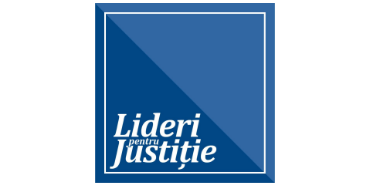The Communist regime and its Securitate (secret police) forces kept granpa in jail, for quite a number of years after WWII, because he’d fought on the Eastern front, against the Soviets, and because he’d claimed his fundamental freedoms of association, expression and conscience. Armed bullies draped in Communist Party attire confiscated granma’s land and property, simply because she’d had it and they could. Some communist dimwits precluded my mom from undergoing an experimental Interferon treatment in Germany for her Multiple Sclerosis, because she’d refused to rat on the doctor who pushed her papers across the Iron Curtain. Some Securitate agents made my uncle’s life a living nightmare once his wife escaped to the US and managed to get his papers in order to flee over the Big Pond. Lovable and dependable friends of dad’s informed the Securitate forces as to him (and my) listening to Radio Free Europe and Voice of America. I wouldn’t be accepted to law school because my family was “hostile” to the Communist regime. Discretionary power at its peak, wouldn’t you say?!?
18 years have passed, and one should think all this is history… Wrong! I came back from the CoSP only to discover that Romania’s Constitutional Court last week ruled out of existence the National Council for the Study of the Securitate Archives–CNSAS. The legal argument appears air-tight, but… All political parties have Securitate skeletons in their closets; all public institutions harbor former communist activists, former members of the party nomenklatura, former Securitate agents. CNSAS was in charge of uncovering the truth about who (from the party ranks or the Securitate brass) did what (type of political, emotional or physical torture) to whom (from among the ordinary, freedom-loving individuals living under that despicable regime). CNSAS was also in charge of pseudo-lustration, in its softest form ever encountered, screening and certifying whether a candidate for public office could be identified in the Securitate archives (with the understanding that such a person would not be morally qualified to occupy public office). But there’s a right time for everything–and Romania’s incapacity to lustrate in the very early 90s now backlashes via democratic institutions populated with undemocratic rulers 🙁 And rule-of-law dictates that decisions of the Constitutional Court are final, directly and immediately applicable. An Emergency Ordinance issued by the Cabinet today attempts to salveage some of the “truth-uncovering” features of CNSAS, while lustration will quietly wait its turn, some other day…
I submit to you that belated lustration won’t ever work! But not all is lost, I think, as both the perils and solutions to this situation are to be found in lessons learned about corruption: Why is lustration important? Because people assume rulers to be ruthless and are afraid of their abusing old networks to influence democratic institutions back into authoritarian practice. Oops! This is exactly what happened last week 🙁 Oh, and I just mentioned abuse, which ties in so closely with discretionary power. We do work on the definition of corruption as being the abuse of entrusted power for private gain. Would it be possible that ruthless rulers connected to the old regime abuse institutions and procedures to offer benefits to their old pals? Oops! This also happened last week, as one of the justices on the panel is husband to a political party leader currently formerly under investigation from (the disbanded?) CNSAS 🙁 Okay, I know this is not outright corruption, but we can all agree it’s plain conflict of interests. UNCAC articles 7(4), 8(5) and 12(2)b) encourage States Parties to adopt legislation that would prevent conflicts of interests in any way, shape or form. Making decisions that benefit a public official, their family, friends, individuals and/or organizations wherewith they had business or political relations enter the realm of conflicts of interests, as rightly put in article 13 of Recommendation R(2000)10 of the Committee of Ministers of the Council of Europe.
Hence, let’s solve this problem swiftly, shooting two birds with one stone! Forget about proper lustration, I say, in spite of all the suffering the old regime has put one (or their family) through! Introduce tight rules and procedures on the prevention of conflicts of interests, and that will also take care of the old regime’s undue influence, suffocating their old networks and old ways of “business as usual.” PCR–the acronym of the Romanian Communist Party until 1989–also stood for „pile, cadouri, relaţii” meaning a morass of connections, gifts, networks in and around the party ranks, official nomenklatura and Securitate brass. Good conflict of interests rules in the public sector should prevent these people from abusing power today, and would act as a very effective (and alternative) means of administrative lustration–the only type of lustration acceptable, according to the jurisprudence of the European Court of Human Rights. Otherwise, just as exponents and subordinates of the former Communist regime from all our “democratic” parties colluded last week in the Constitutional Court’s decision to dismantle our only chance to learn the truth about the past, they would soon enough start dealing in discretionary power to put people in jail, torture and violate innocent individuals and their property, refuse law-abiding citizens from medical treatment, from higher education or, why not?, from justice.






